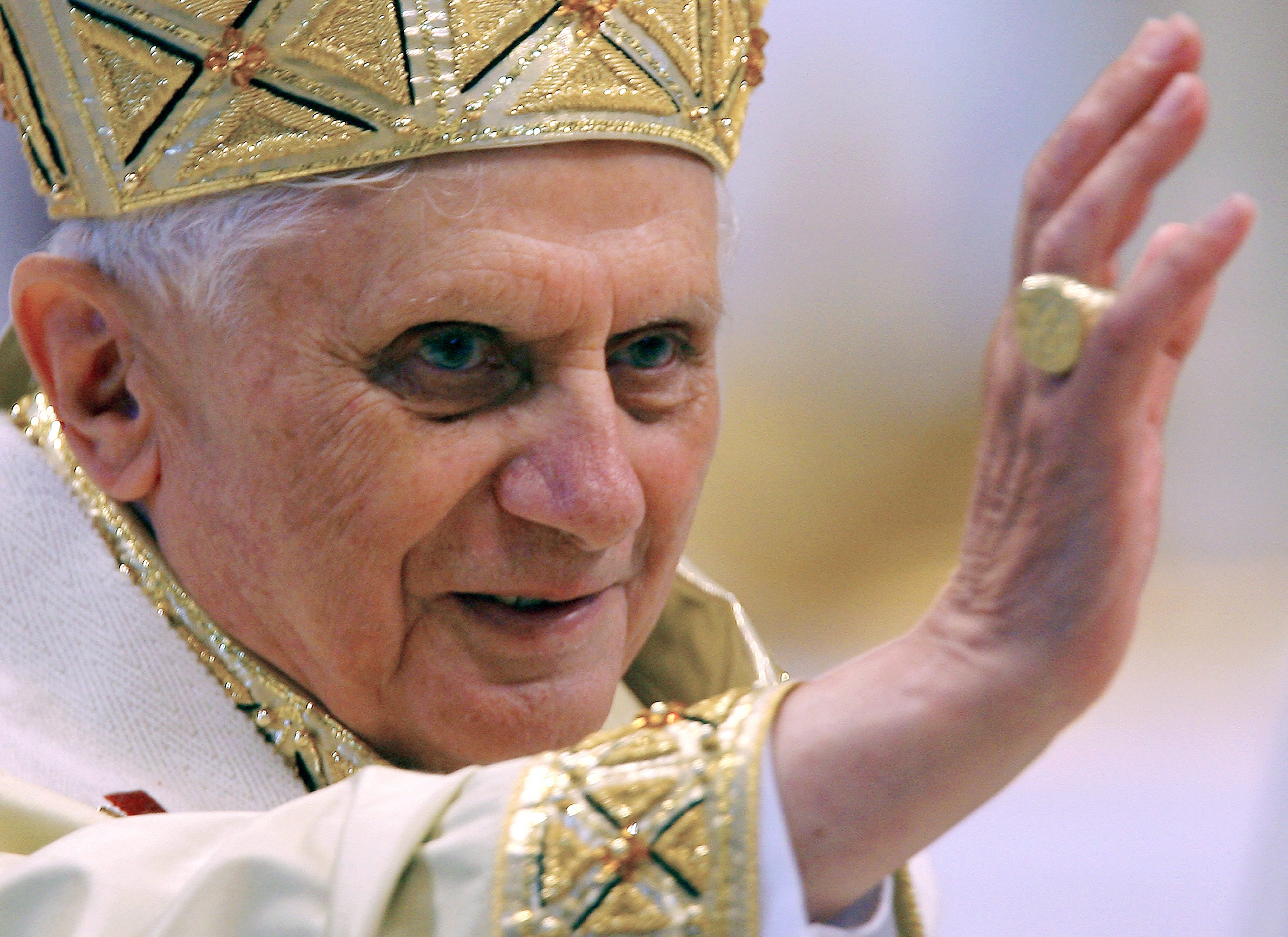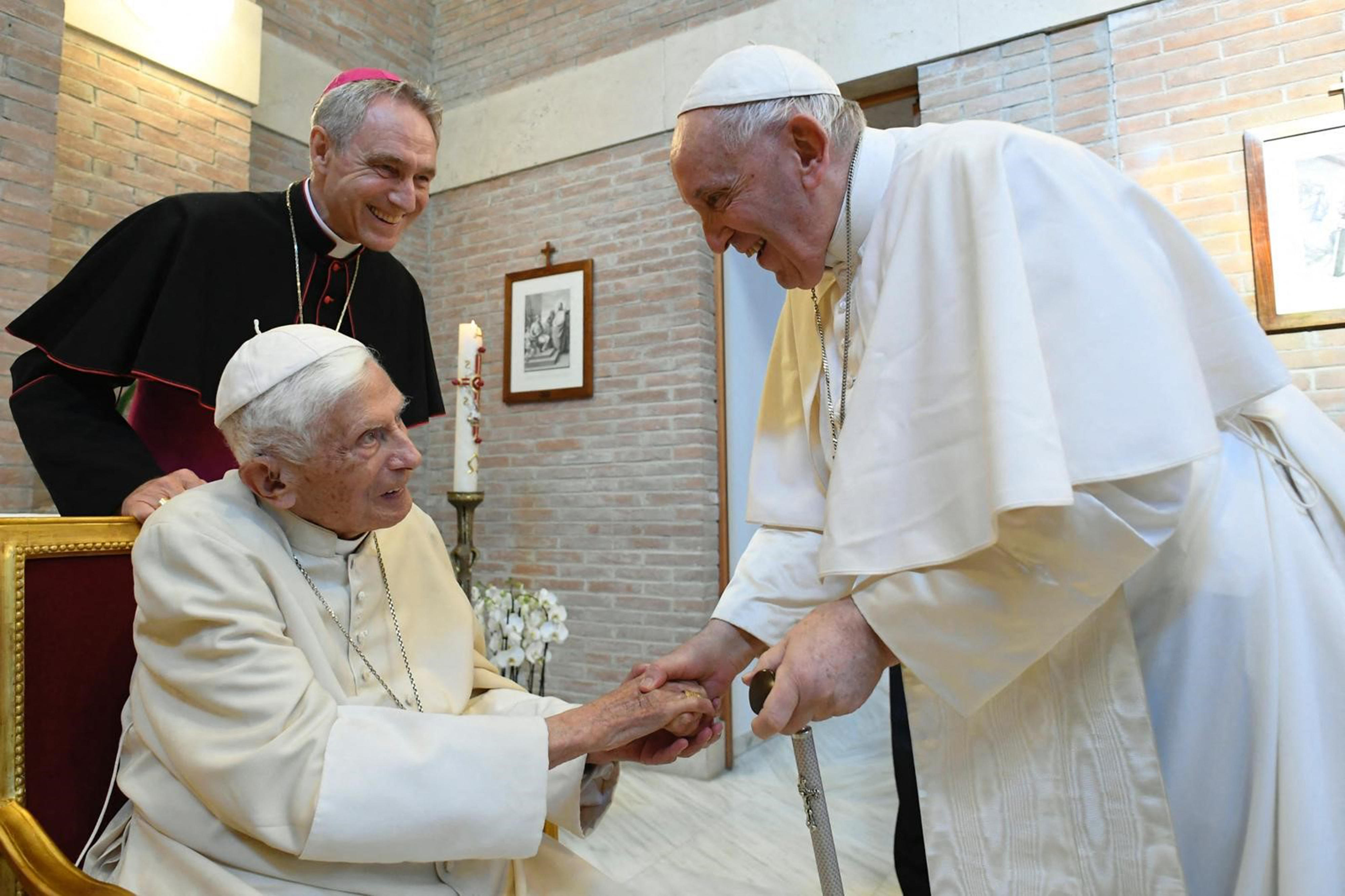Prime
Pope Benedict and secularism

In this file photo taken on May 6, 2006 Pope Benedict XVI blesses faithful, in St Peter's basilica, at the end of the mass to mark the celebration of the anniversary of the Swiss guard corp. PHOTO/AFP
What you need to know:
- As we say a big goodbye to the long-serving man of God, we can certainly say that he was a gentle old man like our own grandfathers.
People of all walks of life hailed the late Pope Benedict XVI as one of the greatest minds and most influential figures of the 20th and early 21st centuries. Scholars within the church consider him as one of the outstanding theologians of modern times which includes the last three to four centuries.
It would not be surprising if the church officially call him Doctor of the Church, title given to personalities who have contributed significantly to the theological scholarship of the church or he could be called the Father of the Church, the title that were common during the early centuries of the church who sustained the faith of the church, especially during turbulent times.German Chancellor Olaf Scholz paid tribute to his countryman and the first German Pope as, “World has lost a formative figure of the Catholic Church, an argumentative personality, and a clever theologian.” Cardinal Gracias of India affirmed that, “Benedict was one of the greatest theologians of our times. History will judge him very, very favourably as someone who has contributed to the progress of theology. I’m amazed at the variety of subjects that he spoke on and his depth of understanding of the scriptures.”
Though he is praised for contributing to the progress of theology he was largely considered as a Conservative. Often the Christian world relishes in terming the high leaders of the church as conservatives and liberals, Pope Benedict was often termed as a conservative. It often means old-fashioned, traditionalist or conformist. They are considered inflexible, uncompromising and even against progress in thought and action. As the Russian President Vladimir Putin put it, ‘Pope Benedict was a convinced defender of traditional Christian values’ he struggled hard to maintain the religiosity in Europe and fought to keep its Christian root.
What could have made Pope Benedict to be considered a Conservative—which is not always reflected as something positive of a person’s belief and practice? The late Pontiff has been personally struggling with the weakening of the Church in Europe for the past at least four decades. We are all aware of dwindling attendance in the church in the traditional Christian/Catholic countries including his native Germany. Many surveys and analysis reveal the weakening of belief on various fundamental truths of the church such as Eucharist and sacramental life.
It is a matter of fact that many atheistic secularists who are often called modernists wish to see history (especially in Europe) wish to be reversed and wish the very light of Christianity which is the foundation of European life and philosophy annihilated. But all right thinking people cannot deny the Christian root of Europe which shaped its laws and culture. Pope Benedict strongly believed that the history of European civilization cannot be rewritten without giving its rightful credit to Christianity. He went through painful moments, especially in the last years of his papacy and the years of retirement looking at the weaning of Christianity in Europe.
We can confidently say that the words such as ‘pre-Christian Europe’ and secular Europe pained him deep in his heart.
As the pope he spared no opportunity in highlighting the rightful place of God and the Church in the lives of people, especially in Europe. He repeatedly pointed out as he said in German Parliament on 22nd September 2011 ‘…it is from faith in God our Creator that the very idea of human rights and of equality before the law arose, and that the inviolable dignity of every human person came to be recognized.’
Much of Pope Benedict’s formative years and later as a teacher of theology were done at the peak of Nazism and Communism which attempted to discard the Christian inheritance of faith and morality as if it had never existed. They sought either to return to the pagan past or to ‘re-create’ and ‘redeem’ humanity by political will and ideology with terrible consequences. They wanted Christianity to be no longer to form the basis and bedrock of the society which was largely Christian. Perhaps Pope Benedict saw a similar trend being brought in through secularism, consumerism and hardcore materialism.
He certainly fought against it through his preaching, writing and prayer. Certainly Pope Benedict will be remembered as one of the leading figures among the global leaders fighting to keep the traditional value and definition of family which he personally believed as important for the church and society.
His teaching, writing and other moments of admonition surely portray him as a stern disciplinarian but he also mellowed down as the Pope (which literally means Father) and presented himself as a kind-father, especially when he wrote his famous document ‘God as Love’. As we say a big goodbye to the long-serving man of God, we can certainly say that he was a gentle old man like our own grandfathers.
May his desire of keeping godly faith and living it daily be realized in our lives.
Fr. Lazar Arasu SDB, Priest and School Administrator.



